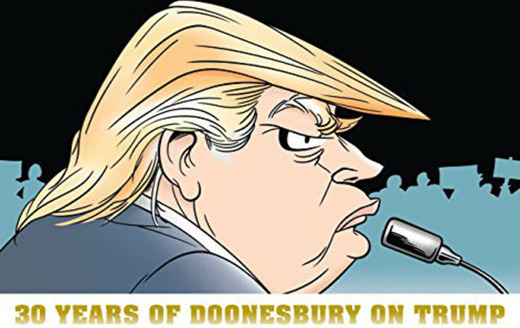
The Poisoned Pen and the Trump Tower: What Tom Lehrer’s Satire Reveals About Media Relations
In an era where news cycles churn at breakneck speed and public discourse often feels like a performance, the sharp, incisive wit of political satirist Tom Lehrer offers a surprisingly relevant lens through which to examine Donald Trump’s complex and often turbulent relationship with the media. While Lehrer composed his iconic songs decades before Trump’s rise to political prominence, his keen observations on human nature, power, and propaganda hold a mirror to the unconventional media tactics employed by the former president.
Lehrer, a master of blending catchy melodies with darkly humorous critiques, understood the power of repetition, exaggeration, and the outright absurdity to expose societal flaws. It’s a playbook that, perhaps unintentionally, seems to echo in the communication strategies that defined Trump’s presidency.
The Art of Amplification: Lehrer’s “The Elements” Meets Trump’s Tweets
Tom Lehrer’s genius lay in distilling complex ideas into simple, memorable forms. Consider “The Elements,” a song that rattled off the periodic table with alarming speed and a cheerful disregard for scientific accuracy. The underlying humor wasn’t just in the rapid-fire delivery, but in the way it made something seemingly overwhelming, accessible and even catchy.
This mirrors how Donald Trump utilized social media, particularly Twitter, to dominate news cycles. His tweets, often short, declarative, and frequently employing hyperbole, served as a constant stream of attention-grabbing content. Like Lehrer’s songs, they were designed for maximum recall and dissemination, often overshadowing more nuanced reporting.
- Keyword Integration: Trump’s media relations, Tom Lehrer satire, political communication, social media strategy, news cycle dominance.
“Who’s Next?”: Lehrer’s Nuclear Diplomacy and Trump’s “Fake News”
Lehrer’s song “Who’s Next?”, a darkly comedic take on nuclear escalation, highlights the potential for a casual, almost flippant approach to catastrophic issues. The song’s chorus, a chillingly simple question posed repeatedly, evokes a sense of inevitability and a disturbing lack of accountability.
This resonates with Trump’s consistent labeling of critical news outlets as “fake news.” By attacking the credibility of journalists and their reporting, he sought to control the narrative and sow doubt in the public mind. This strategy, much like the escalating tension in “Who’s Next?”, created a chaotic information environment where objective truth became increasingly elusive.
- Keyword Integration: Tom Lehrer songs, fake news, media criticism, narrative control, information warfare.
“Send the Marines”: The Blurring Lines of Reality and Performance
Lehrer’s “Send the Marines” – a song that humorously depicts a farcical intervention in a fictional conflict – satirizes jingoistic foreign policy and the ease with which military action can be invoked. The absurdity of the scenario underscores how easily rhetoric can mask a lack of genuine strategy or understanding.
Trump’s approach to foreign policy and his often dramatic pronouncements often blurred the lines between policy and performance. His rallies, characterized by vivid language and a flair for the theatrical, served as a direct conduit to his supporters, often bypassing traditional media filters. This created a feedback loop where his pronouncements, regardless of factual basis, were amplified through his dedicated base.
- Keyword Integration: Tom Lehrer’s satire, Trump’s foreign policy, political rallies, media bypass, rhetorical strategies.
“The Smut Song”: Lehrer’s Cautionary Tales on Censorship and Control
While “The Smut Song” is perhaps Lehrer’s most overtly controversial piece, its underlying theme of societal anxieties around what is deemed acceptable or unacceptable can be seen as a precursor to attempts to control public discourse. His willingness to push boundaries and challenge prevailing norms is central to his satiric power.
Trump’s repeated attacks on individuals and institutions that he perceived as critical, coupled with his administration’s sometimes opaque approach to information sharing, can be viewed through a similar, albeit less musically inclined, lens. The desire to shape perceptions and limit dissenting voices is a recurring motif.
- Keyword Integration: Tom Lehrer lyrics, censorship, media control, public discourse, societal anxieties.
Lehrer’s Gift to the Public Domain: A Contrast in Ownership
Lehrer’s recent decision to put his entire song catalogue into the public domain, allowing anyone to use his lyrics “without payment or fear of legal action,” stands in stark contrast to the increasingly litigious and proprietary approach often seen in modern political branding. As noted by some observers, Trump’s tendency to trademark slogans and assert ownership over phrases underscores a fundamentally different philosophy of engagement with the public sphere.
This contrast highlights a core difference: Lehrer’s art thrived on shared understanding and open interpretation, while some modern political communication prioritizes ownership and singular control.
| Lehrer’s Approach | Trump’s Approach (as seen in media relations) |
|---|---|
| Open interpretation, public domain | Proprietary slogans, controlled narratives |
| Satire as critique | Rhetoric as brand building |
| Embraces absurdity for truth | Uses absurdity to deflect or confuse |
Conclusion: The Enduring Relevance of a Musical Maestro
Tom Lehrer’s satire, with its biting humor and fearless critique, reveals a timeless pattern in how power interacts with perception. His work serves as a potent reminder that the tools of amplification, narrative control, and the strategic use of absurdity can be incredibly effective in shaping public opinion.
Understanding the parallels between Lehrer’s sharp observations and Donald Trump’s media relations offers valuable insights into the dynamics of modern political communication. It underscores the importance of media literacy, critical thinking, and the enduring power of satire to hold a mirror to the often-uncomfortable truths of our time. As we navigate the ever-evolving media landscape, lessons from the witty, insightful world of Tom Lehrer remain as relevant and necessary as ever.

Additional Information
Tom Lehrer’s Enduring Satire: A Mirror to Trump’s Media Relations
While Tom Lehrer, the legendary political satirist, ceased his public performing career decades ago, his recent decision to place his entire song catalogue into the public domain has unexpectedly thrust his sharp observations back into the spotlight. This act of radical generosity, allowing his lyrics to be “performed and quoted endlessly” without fear of legal action (as highlighted in search results 2, 3, and 4), has prompted a re-examination of his work. It is in this contemporary context that Lehrer’s prescient satire offers a particularly insightful lens through which to analyze Donald Trump’s distinctive and often tumultuous media relations.
Lehrer’s genius lay in his ability to dissect the absurdities and hypocrisies of his time with biting wit and an often unsettling musicality (result 6). He understood that the most effective satire often exposes deeply ingrained societal tendencies. When we consider Trump’s approach to the media, several of Lehrer’s satirical themes resonate with uncanny accuracy, suggesting that the core dynamics of modern political communication were, in some ways, anticipated decades ago.
One of the most striking parallels lies in the manipulation and prioritization of attention. Lehrer, in songs like “The Masochism Tango,” often played with the idea of individuals actively seeking out unpleasant experiences. Trump’s media strategy, characterized by a constant barrage of provocative statements, rallies, and social media pronouncements, can be seen as a method of commanding the media’s – and consequently, the public’s – unwavering attention. Regardless of the factual accuracy or the potential negative consequences, Trump’s pronouncements often generate enough noise and outrage to dominate headlines, much like a perverse, self-inflicted suffering that the media feels compelled to report on.
Furthermore, Lehrer’s satire often skewered simplistic, jingoistic appeals and nationalistic fervor. His songs, written during the Cold War era, frequently targeted blind patriotism and the manipulation of public sentiment for political gain. While search result 5 notes that Trump’s “Make America Great Again” slogan taps into a “stream of nostalgia,” Lehrer’s earlier work implicitly warned against the dangers of such appeals when divorced from critical thought. Trump’s media relations have consistently leveraged a narrative of national greatness, often framing any criticism as unpatriotic or an attack on the nation itself. This strategy effectively silences dissenting voices by conflating critique of leadership with an attack on the country, a tactic Lehrer’s satire might have found disturbingly familiar.
Lehrer’s work also touched upon the commodification and trivialization of serious issues. His songs often took complex and grave subjects – war, pollution, nuclear annihilation – and distilled them into catchy, almost childlike melodies. This created a disquieting dissonance, highlighting how readily humanity could become desensitized to existential threats. In Trump’s media relations, we observe a similar tendency to flatten complex policy debates into soundbites and to prioritize sensationalism over substantive discussion. Trump’s use of social media, for instance, often reduces intricate geopolitical issues or domestic policy challenges to a series of tweets, designed for maximum immediate impact rather than thoughtful engagement. This mirrors Lehrer’s portrayal of how serious matters could be reduced to catchy, easily digestible (and often misleading) slogans.
The very act of Trump engaging with the media, often through confrontational and adversarial means, also echoes Lehrer’s cynical view of how power operates. While Lehrer never directly addressed Trump, his songs like “Send the Marines” (referenced in search result 1, though the summary doesn’t detail the specific connection beyond prediction) might be interpreted through a lens of aggressive, often unjustified, displays of power. Trump’s consistent labeling of critical news outlets as “fake news” or “enemies of the people” reflects a strategy to undermine the credibility of institutions that hold power accountable. This creates an environment where factual reporting is dismissed in favor of a preferred narrative, a scenario that Lehrer, with his keen eye for propaganda and manipulation, would likely have recognized and satirized.
Ultimately, Tom Lehrer’s enduring satire, now more accessible than ever, provides a potent framework for understanding the dynamics of Donald Trump’s media relations. His songs remind us that the tactics of manipulation, the appeal to simplistic nationalism, and the trivialization of serious matters are not entirely new phenomena. Instead, they represent recurring patterns in the interplay between power, public perception, and the media. Lehrer’s work, by forcing us to confront these uncomfortable truths with a darkly humorous clarity, continues to serve as a vital, if often unsettling, guide to navigating the complexities of our political landscape. The fact that his 50-year-old observations feel so contemporary when applied to current events speaks volumes about the timeless nature of his critique and the persistent challenges of maintaining an informed and discerning public.






Leave a Reply